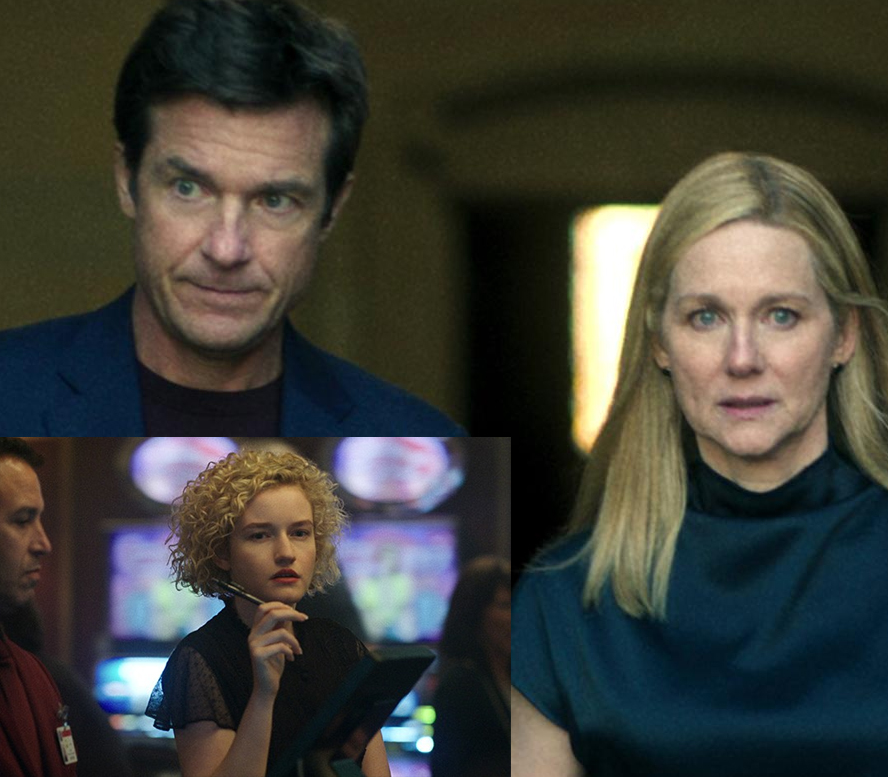By Darren Johnson
Campus News
Well, that series finale was awful.
“Ozark,” the epic Jason Bateman-led crime show on Netflix, has stretched four seasons over five years, uploading the last few episodes of the series April 29, 2022.
During these years, I kept teetering back and forth as to deciding whether “Ozark” deserves to be in the same class of epic crime series as “The Sopranos” or “Breaking Bad” (or its excellent prequel spinoff, “Better Call Saul,” which is ending soon, as well).
After seeing the “Ozark” finale, I’m leaning toward, no. This is just a second-tier crime show. It had its moments … but that ending.
Let me recap.
We’ve devoted five years to this show, including some pandemic years. It follows the Byrdes, a family of four, from Chicago where Bateman’s accountant character, Marty, gets into some trouble laundering money for a Mexican cartel, and, gun to his head, seeing a brochure for the Ozarks, concocts a story that he can launder the Cartel’s money there. That buys him some time, so the Cartel relents and doesn’t kill him just yet.
Meanwhile, his wife, Wendy Byrde (Laura Linney) partakes in pretty much all of the Seven Deadly Sins, an ultra-manipulative person who often undermines her family for her own personal and political gain.
A friend of mine had a theory – and, in a way, it kind of tainted the final season for me. He suggested that, when Marty had the gun to his head in that first episode, he had actually dreamt up the next few years before being shot and killed. So I kept watching, looking for signs this was all a dream.
While the dream theory is now debunked, maybe the ending of “Ozark” would have been better if indeed it turned out Marty was the Walter Mitty of money laundering.
It would better explain how a group of people who hadn’t accomplished much before almost near-instantaneously became Ozark power lords, even getting a casino built in short order so they can launder money further. Wendy also became one of the most influential political power brokers in the Midwest, even agreeing to greenlight hackable voting machines at one point.
(The dream theory would be like when the struggling family in “Rosanne” hit the lottery, and Dan was killed off; only to be brought back again in a reboot. “It was all a dream!”)
That said, I do like how “Ozark” delved into all of the power plays, between the cartel, the locals, the local police, the unions, the mob and the feds. It was a mature, pragmatic look at how the world works, in microcosm format. And the acting throughout this series was impeccable. Wendy Byrde will go down as perhaps the most notable crime wife in TV history; it’s almost unfair to tag her as just a “wife,” as really she’s the mover and shaker in this series.
Equally notable is Julia Garner, who plays Ruth, a young redneck local who also rises to power, despite all of the problems of her upbringing. “Ozark” handles women better than other notable crime series. In “Breaking Bad,” for example, while a better show overall, there isn’t a single fully-fleshed out female character. In “Ozark,” we have two major female characters and some also impressive supporting female characters.
But, yikes – that finale. It feels as if the writers hadn’t paced themselves and now had to cram everything into that final show, whether it made sense or not.
The Byrdes are in a violent van crash, flipping over several times, but nothing comes of it. They are all fine. There was no reason for that van crash to happen. Not even symbolically.
Ruth starts seeing her dead relatives all around her parked trailers – one is singing a horrible song that was intended to sound good but is painful to hear – and, yes, when you start seeing ghosts, rumor has it, you are about to become one, but would she really want to see these people again considering all of the insinuations of child molestation and such that were in flashbacks? It’s awkward.
Ruth, in about a week or so, inherits so much land that she is now the largest landholder in the county, and then also finagles a deal where she takes the casino from the Byrdes. Amazing how fast all that worked. Meanwhile, I can’t get an appointment at the DMV for a month.
The cartel boss is killed in a prison transport, a hit directed by his sister – a character we barely know, who only came to light in recent episodes – and then the sister, by herself, goes and kills Ruth, figuring out how to get around the back roads of the Ozarks – despite that this made no logical sense, as Ruth’s casino now was the only way the cartel could launder their money.
Also, from a production point of view, why kill off a popular, major character just a few minutes before the ending? There was no reason to, from a plot perspective, and, while Garner, 28, now is a rising star (thanks to “Ozark,” but she’s also on Netflix in the very good “Inventing Anna” series and the movie “The Assistant” on Hulu), there may come a time down the road where she is looking for work, and a new generation of fans may want an “Ozark” sequel or spinoff. Bateman and Linney may be too old to be as convincing by then, but Garner certainly could have commanded a future show.
The “Ozark” finale was a missed opportunity, an epic fail, but, overall, it’s still a worthwhile series. Don’t let the ending ruin it for you. Somehow, “Sopranos” fans have moved on from that ending. Ooh-fa!





Facebook Comments